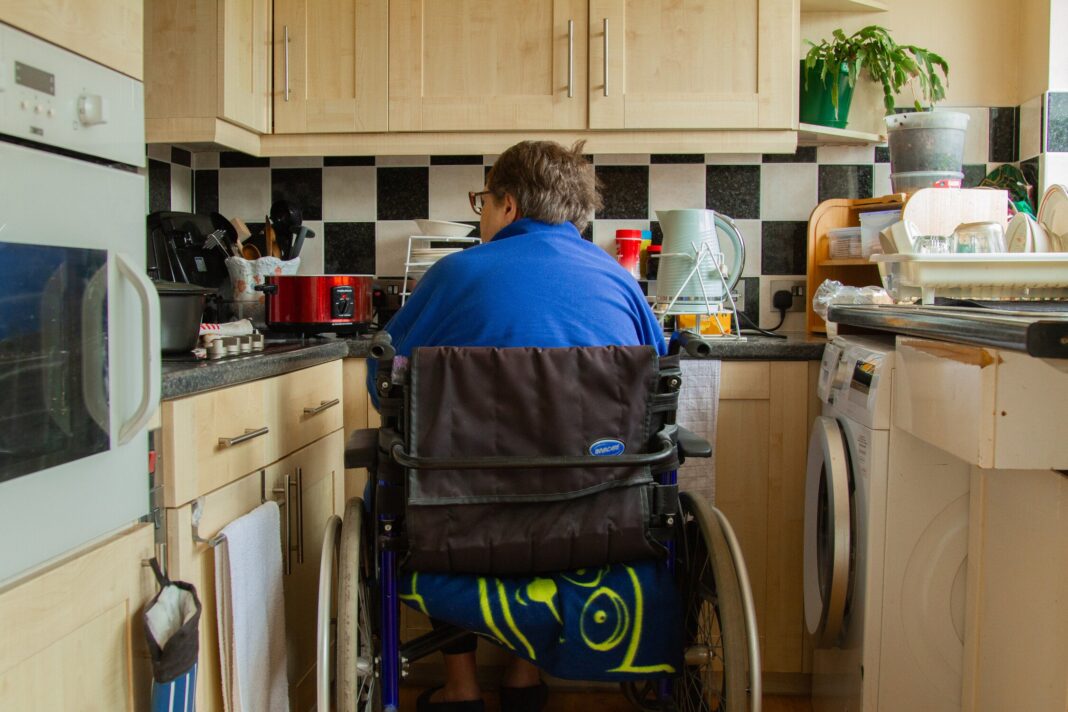Nearly 900,000 people in the UK have missed out on the opportunity to live in accessible housing due to delays in implementing promised reforms to building regulations, according to new analysis by the Centre for Ageing Better and Habinteg Housing Association.
Three years ago today [Tuesday, 29 July], the government announced plans to mandate higher minimum accessibility standards in all new homes, following a large-scale consultation.
The proposed regulation would require all new builds to meet the M4(2) standard, which includes step-free access and other features to make homes more easily adaptable over a person’s lifetime.
But despite the commitment, no follow-up consultation has been launched to implement the change, and the policy remains on hold.
OUTDATED MINIMUM STANDARDS
In that time, more than 375,000 new homes have been built to the outdated minimum standards, with only an estimated 112,000 constructed to accessible and adaptable specifications.
The Centre for Ageing Better and Habinteg argue that if the promised regulatory shift had gone ahead as planned, up to 885,000 people could now be living in homes suitable for people with disabilities or mobility needs.
New polling conducted by the Centre for Ageing Better reveals deep public concern about future accessibility.
STRUGGLE TO MOVE
Two-thirds of respondents (66%) said they would struggle to move around or carry out everyday tasks in their current homes if they developed a serious health issue or injury. Meanwhile, more than three-quarters (77%) said all new homes should be built to a standard that enables independent living as people age or become disabled.

Millie Brown, Deputy Director for Homes at the Centre for Ageing Better, says: “We welcome the government’s commitment to building 1.5 million new homes; however, it is paramount that they are built to be accessible and adaptable.
The government must seize this opportunity to address the crisis of inaccessible housing and bridge the ever-widening gap between the number of Disabled people and accessible homes.
“The proportions of older and Disabled people among our population are growing significantly, and yet there are not enough provisions to support this change in our country’s demographics – we are falling abysmally short of meeting people’s needs.”
And she adds: “We know that the impact of raising minimum accessibility standards could have been life-changing to so many people had it been implemented over the past three years; from performing basic tasks like being able to shower without risking injury, to having the ability to enter the front door and move around easily.
“People living in homes which do not meet their accessibility needs cannot just wait for years and years clinging to the hope this change might happen at some point in the future, their need is desperate and urgent.
“Everyone deserves to live in a home that affords them safety and independence. Now is the time to make the change and raise the level of what we should expect from our housing.”
HOUSING COALITION
The Housing Made for Everyone (HoME) coalition, co-chaired by Habinteg and the Centre for Ageing Better, is now urging the government to embed the M4(2) standard in the upcoming Planning and Infrastructure Bill.
The coalition argues that raising accessibility standards would not only support independent living for millions of older and Disabled people, but also help reduce pressures on health and social care services.

Christina McGill, Director of Social Impact & External Affairs at Habinteg, says: “The Government’s plans for housing are central to so much of what it wants to achieve.
“Accessible and adaptable homes in particular hold huge potential to reduce health and social care costs whilst supporting disabled and older people to work and maintain independence.
“Yet twelve months into the new Government’s term we’ve heard very little of its intentions with regard to the minimum standards of accessibility and adaptability.
“Meanwhile homes are being built, and plans are being made for new developments which will not be accessible and adaptable and will therefore fail to deliver these critical outcomes.
“Far too many disabled and older people are making do in homes that limit their lives and independence. That’s why Habinteg and the HoME coalition are asking government to act now on accessible homes rules. With a rapidly aging population and increasing rates of disability the government needs to ensure the country’s new homes will all be fit for the nation’s need both now and into the future.”
ACCESSIBILITY GAP
Earlier research from the Centre for Ageing Better shows that the UK’s stock of accessible housing has barely improved over the past decade, despite growing demographic pressure.
In just over 10 years, the accessibility gap – the shortfall between the number of people with accessibility needs and the homes available to meet them – has widened by more than two million people, with an estimated 12 million now unable to access suitable accommodation.
Campaigners say the case for regulatory action is now overwhelming, both socially and economically. With the Planning and Infrastructure Bill under development, they argue that the government must act decisively to close the gap and ensure future housing stock reflects the country’s changing needs.










